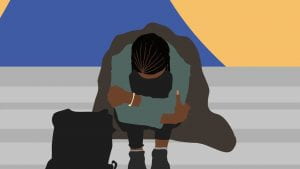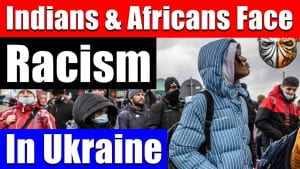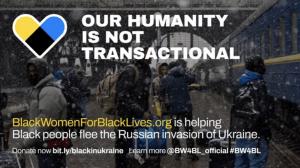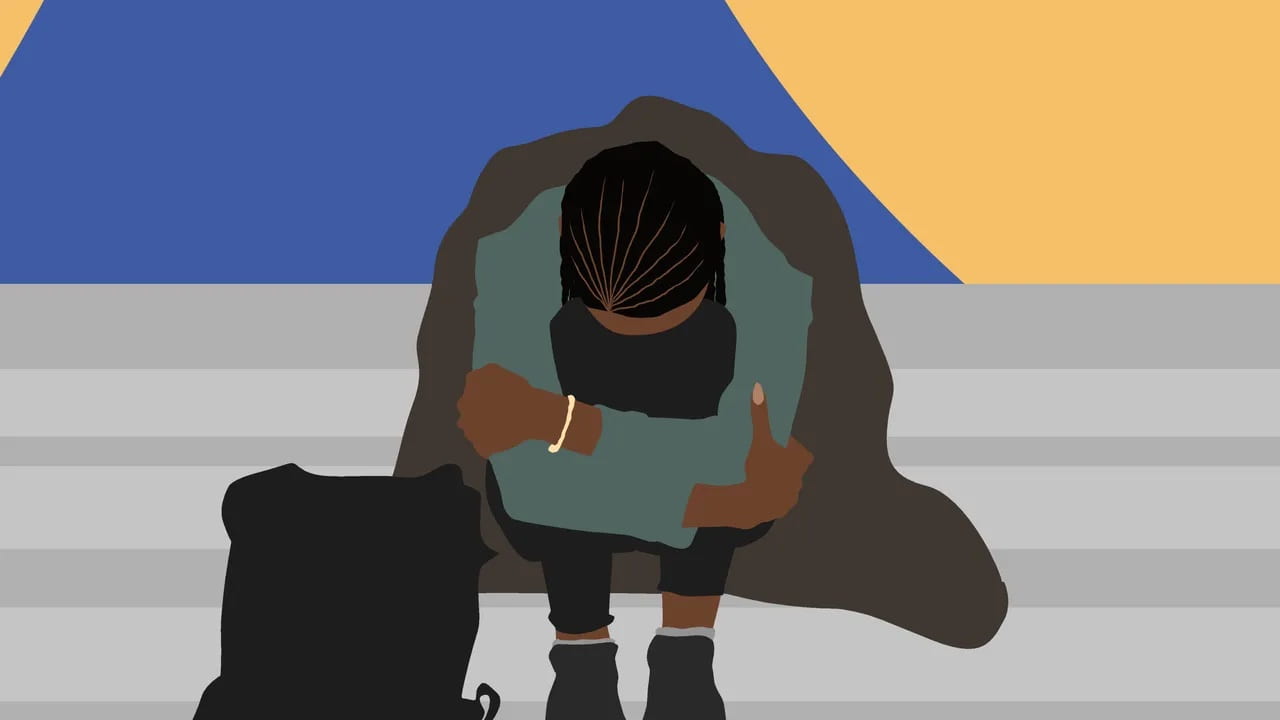by Laura Nell Walker

Since Putin’s unprovoked invasion of Ukraine, much has changed. The ruble plummeted in value, the historically neutral Switzerland joined other nations in sanctioning Putin, and airspace around the world is now banned to Russian flights. However, as the refugee crisis reaches 2 million people fleeing war torn Ukraine, one pre-invasion precedent remains the same: racial inequality. Multiple allegations of racist incidents occurring at Ukraine’s border were reported with more surfacing in news outlets everyday.
Ukraine is home to around 76,000 foreign students according to the BBC, the majority traveling from India and multiple countries in Africa. This is the result of attractive educational policies and an anti-imperialist stance cultivated since the soviet era. Characteristics like affordable living (relative to other European countries), high quality education, and easy visa access have established Ukraine as a gateway to high paying jobs in Europe. In the lead up to Putin’s invasion, many students petitioned their universities to move online. Not only were their pleas dismissed, but they were told fines would incur if they missed class.
Now, as students evacuate, they are met with obstacles at the border, harassment, and little help from their home countries. After making the harrowing trip from their universities to the miles long traffic jam at the border, international students are told that Ukrainian citizens have priority. Some reports state that for every 200 to 300 Ukrainians, only 5 to 10 people of other nationalities are let through. Yetunde Asika, a Nigeria-based international human rights attorney, told CNN “…the story of a [Nigerian] medical student who had walked about 11 hours overnight to the border and was then told she couldn’t cross until the Ukrainians had been evacuated first.” Similarly, Jessica Orakpo, another Nigerian student, describes in a video how she was forced to walk nearly 20 hours within the span of two days in her desperate attempt to reach Poland. Other reports include segregated lines, Black women and children blocked from trains, and a group of black students forced to make yet another journey to the border of Hungary after giving up hope on admission to Poland.
In some cases, representatives from the student’s home nation wait in neighboring countries to assist, but many international refugees assert that the more immediate need is advocates on the Ukrainian side of the border. Nigerians interviewed by a CNN reporter blamed the Nigerian government more than the Ukrainians, saying “It [government support] would have been so helpful in Ukraine, we were looking for someone to speak on our behalf there.” Some African students took matters into their own hands, creating a network of support and funding for other Africans and people of color trying to flee the country. Korrine Sky, Tokunbo Koiki and Patricia Daley created an organization called Black Women for Black Lives. Daley told NBC that “There was a gap in the access Black people and brown people were getting. There was no one offering their homes to Black people, no one offering to pick up the Black individuals”. As a result, the three started a group chat to share information and facilitate mutual support among other Black and brown refugees. They also created an online document outlining paths of least resistance out of the country, including warnings to avoid checkpoints where racial harassment took place, accommodations friendly to people of color, and drivers available to assist with transport. The three women estimate they’ve helped around 500 people cross the border and that number increases everyday. They’re bravery points to an unfortunate reality that people of color, especially Black women, are left to fill the gap in support as a result of governmental failings.

While Black and Brown refugees still lack immediate assistance from officials on the ground, global support and outrage is increasing. Multiple African government officials have condemned the treatment of their citizens and an International Coalition appealed the U.N. on March 2. The coalition of activists and human rights attorneys petitioned for the international community to hold Ukrainian and Polish officials accountable for what they see as actions on par with war crimes. Their two primary demands are an end to racially motivated harassment at the border and equal admission into neighboring countries for non-Ukrainians. During a press conference associated with the coalition, attorney Jasmine Rand said, “They face one war waged by Russia, and they face a second war waged by racism because of the color of their skin. We are here today because Black Lives Matter in times of war, and in times of peace,”
Simultaneously, global outrage responding to racist comments by multiple news reporters sparked a discussion of the assumptions and stereotypes associated with the word “refugee.” One of the most provocative and widely shared was stated by CBS correspondent, Charlie D’Agata: “This isn’t a place, with all due respect, like Iraq or Afghanistan, that has seen conflict raging for decades. This is a relatively civilized, relatively European…city, one where you wouldn’t expect that, or hope that it’s going to happen.” A refugee crisis deserves immediate action whether it takes place in the Middle East or Europe. Popular comedian Trevor Noah spoke out on Instagram in response to the controversy saying, “I think rather than this being a moment to turn on each other, the Ukraine refugee crisis should be a reminder that ‘refugee’ is not a synonym for ‘Brown person.’ Anyone could be a refugee. It’s a thing that happened to you. It’s not who you are.” As the world unites to confront this tragedy, it highlights the hypocrisy historically implemented in humanitarian crises, serving as a prompt that all refugees deserve the same level of support and concern from the international community.
How to Help
Support Black People Fleeing Ukraine!


